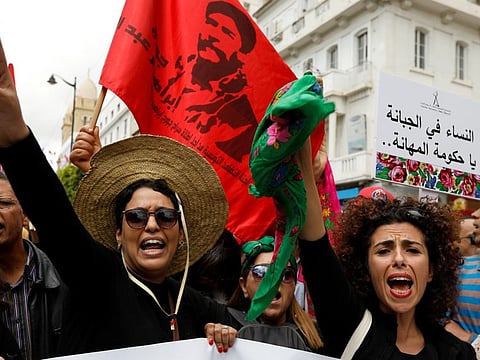Tunisia raises minimum wage to tackle discontent
Pensions for private-sector retirees were also raised by 6.5 per cent

Tunis: Tunisia raised the minimum wage for industrial and farm workers as well as pensions for hundreds of thousands of private-sector retirees by 6.5 per cent on Wednesday in a move to defuse discontent over economic hardships.
Thousands protested on Monday in the central city of Sidi Bouzid against marginalisation and deteriorating economic conditions. Hundreds of disgruntled young people also rallied in the northern city of Kef on Tuesday, demanding jobs.
A government statement said Prime Minister Yousuf Chahed had approved a rise in the monthly minimum wage for industrial and agricultural workerss of 6.5 per cent to 403 dinars ($133.93).
A 6.5 per cent rise in pensions for 700,000 retirees in the private sector was also approved.
Hundreds of retirees demonstrated in front of parliament this week demanding higher pensions to counter rising inflation and and declining purchasing powers.
Chabad’s decision came in the face of pressure from Tunisia’s foreign creditors for a freeze in wages in the public sector, which includes some industrial workers, to reduce its large budget deficit.
The North African country has been hailed as the Arab Spring’s only democratic success story because protests toppled autocrat Zine Al Abidine Bin Ali in 2011 without triggering violent upheaval, as happened in Libya, Egypt and Syria.
But since then, nine cabinets have failed to resolve Tunisia’s economic woes including high inflation and unemployment, and impatience over its slowness in carrying out reforms is rising among lenders such as the IMF.
The IMF has pushed Tunisia to freeze public-sector wages - the bill for which doubled to about 16 billion dinars ($5.5 billion) in 2018 from 7.6 billion in 2010 - to reduce them from about 15.5 per cent of GDP now to 12.5 per cent in 2020.
They also want Tunis to trim spending to help reduce its heavy budget deficit, though such steps risk adding fuel to public anger over joblessness and poverty.



